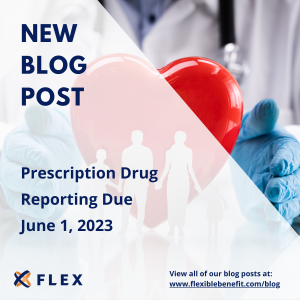United States Department of Treasury
The No Surprises Act (NSA), enacted as part of the Consolidated Appropriations Act of 2021, requires group health plans and health insurers to report information on prescription drug and health care spending to the Department of Health and Human Services (HHS), Department of Labor (DOL), and the Department of Treasury (DOT). The reporting process is referred to as the Prescription Drug Data Collection, or RxDC for short.
The Department of Treasury published a final regulation on October 13, 2022 which eliminates the so-called “family glitch” starting on January 1, 2023.
The Department of Labor (DoL), Department of Treasury (DoT) and the Department of Health and Human Services (HHS) have jointly proposed new rules that would impact Health Reimbursement Arrangements (HRAs) effective January 1, 2020.
The U.S. Department of Treasury recently issued guidance announcing a significant change relating to Healthcare Flexible Spending Accounts (FSAs) that has many positive implications. The Department of Treasury has modified its “use-it-or-lose-it” provision to allow a limited rollover of unused Healthcare FSA funds. Effective immediately, employers that offer a Healthcare FSA program without a grace period have the option of allowing employees to rollover up to $500 of unused funds at the end of the 2013 plan year.
Last week, the U.S. Department of Treasury published final guidance on the Individual Shared Responsibility requirements, also known as the Individual Mandate. The Affordable Care Act (ACA) mandates that most U.S. citizens and permanent residents have a qualified health plan starting in 2014 or face financial penalties.
The public insurance exchanges are expected to introduce a new way for individuals to obtain health insurance coverage next year. However, with the introduction of these exchanges comes a number of complexities and nuances. That includes the topic of premium payment processing and late payments.
Individuals that qualify for Advanced Premium Tax Credits (APTC) through the exchanges will have a portion of their premium subsidized by the federal government, but the balance of the premium will be their responsibility.
The U.S. Department of Treasury announced on Tuesday that the Employer Mandate will be delayed until 2015. This rule is also commonly referred to as the Employer Shared Responsibility requirement or the Pay or Play provision.
The Employer Mandate was set to impose financial penalties starting in 2014 on employers with 50 or more full-time equivalent employees that failed to offer health insurance to employees, as well as those employers that offered health insurance that was considered unaffordable.








